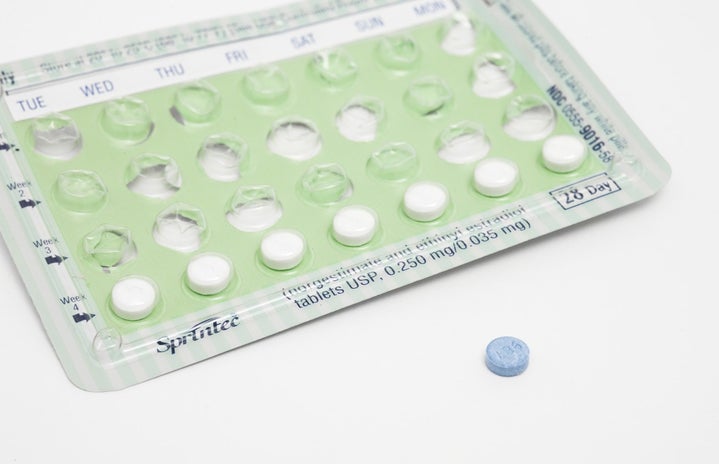Since October has passed, Breast Cancer Awareness Month has come to an end. However, we should still be informed about breast and vaginal health. At Pace University, the ladies at HeforShe wanted to bring awareness to college women about breast and vaginal health. They had an open discussion on everything from warning signs of breast cancer to vaginal infections. This forum was very insightful and brought up many things that I didn’t know I should be looking out for. It is important to have discussions like this so woman know what to look out for because, early detection is important. This article is sharing important points on what the ladies of HeforShe want you to know about your own breast and vaginal health.
First, let’s talk about breast health and the importance of breast screenings. Breast cancer is the most commonly diagnosed cancer in women and is the second leading cause of death among women. While this type of cancer is most common in women, men can also be diagnosed with it. A male with a BRCA mutation could find that they are at risk for breast cancer. Risk factors to look out for include genetic factors, family history, certain genome changes and dense breast tissue. You can give yourself self-breast checks once a month, 2-3 days after your period. There are self-breast checklists that you could look up online that are as simple as examining your breast and armpit with your arm raised. If you are not comfortable with self-breast checks, you can also get mammograms done at a gynecologist, health clinics, Planned Parenthood or with your physician.
Women’s vaginal health is a very important conversation to discuss since there are a lot of things that college women may not be aware of until it is too late. Women should not be afraid to speak to their doctor or gynecologist when they feel like something might be off. Normal things women might notice from their vagina is that they will have a small amount of discharge or a smell due to the pH level. What isn’t normal if it has a fishy/rancid smell; if this is the case you should see your physician. Douching and using harsh soaps or cleansers on the vulva or inside the vagina could also affect your healthy pH levels. Practice safe sex to protect your vagina from STIs and bacterial infections. Some methods of safe sex include using a condom, switching the condom between oral, anal or vaginal sex, avoid sharing sex toys with your partner and getting tested regularly. It is recommended that you begin to get Pap smears at 21 but seeing your gynecologist regularly helps maintain vaginal health.
Three common vaginal infections that can occur are yeast infections, bacterial vaginosis and trichomoniasis. Treating all of these infections are important because they can lead to serious reproductive health problems that tend to be painful. Wearing certain fabrics and tight-fitting clothing can create warm, moist environments for the yeast to thrive. To avoid this, you can wear cotton underpants and avoid thongs. Wearing loose underwear or none while sleeping helps with air flow and decreases the risk of infection. It is also important for people prone to yeast infections to immediately change out of a wet bathing suit or sweaty workout gear. Important signs that tells you it is time to see a doctor is if your vaginal discharge changes color, becomes heavier or smells different. More signs include itching, burning, swelling or soreness around or inside your vagina, a burning sensation when you pee, or if sex is uncomfortable for you.
A syndrome you may not have heard of before is Polycystic Ovary Syndrome which is a hormonal disorder in women. Symptoms of PCOS may include an abnormal menstrual cycle (although you can have a completely normal cycle and still have PCOS), weight gain (due to high levels of insulin) and acne/oily skin (due to high levels of androgens.) Other symptoms that are associated with PCOS are excess hair growth, hair loss, sleep problems, fatigue, depression, anxiety, irritability, mood swings and cysts on ovaries. Your doctor can test for PCOS by a blood and ultrasound tests. The usual course of action for treating this is being prescribed birth control. An improved diet and exercise can also help manage symptoms.
Endometriosis is another disorder diagnosed in women. This is when the tissue inside your uterus (the endometrium) grows outside of the uterus. This can cause painful periods, sex, bowel movements or urination as well as excessive bleeding during or between your period. Your doctor will test for this disorder by using an ultrasound or MRI. If diagnosed, your doctor could prescribe you hormonal birth control or surgery depending on the severity.
If you feel like your body is trying to tell you something is off, you should listen to it. Listen to your instincts and don’t be afraid to talk to your doctor. I want to thank the ladies at HeforShe for giving this presentation because I learned things about my body that I did not know before. I am aware of signs and symptom that I should look out for as wells as understanding the importance of being informed and how your body communicates with you.


